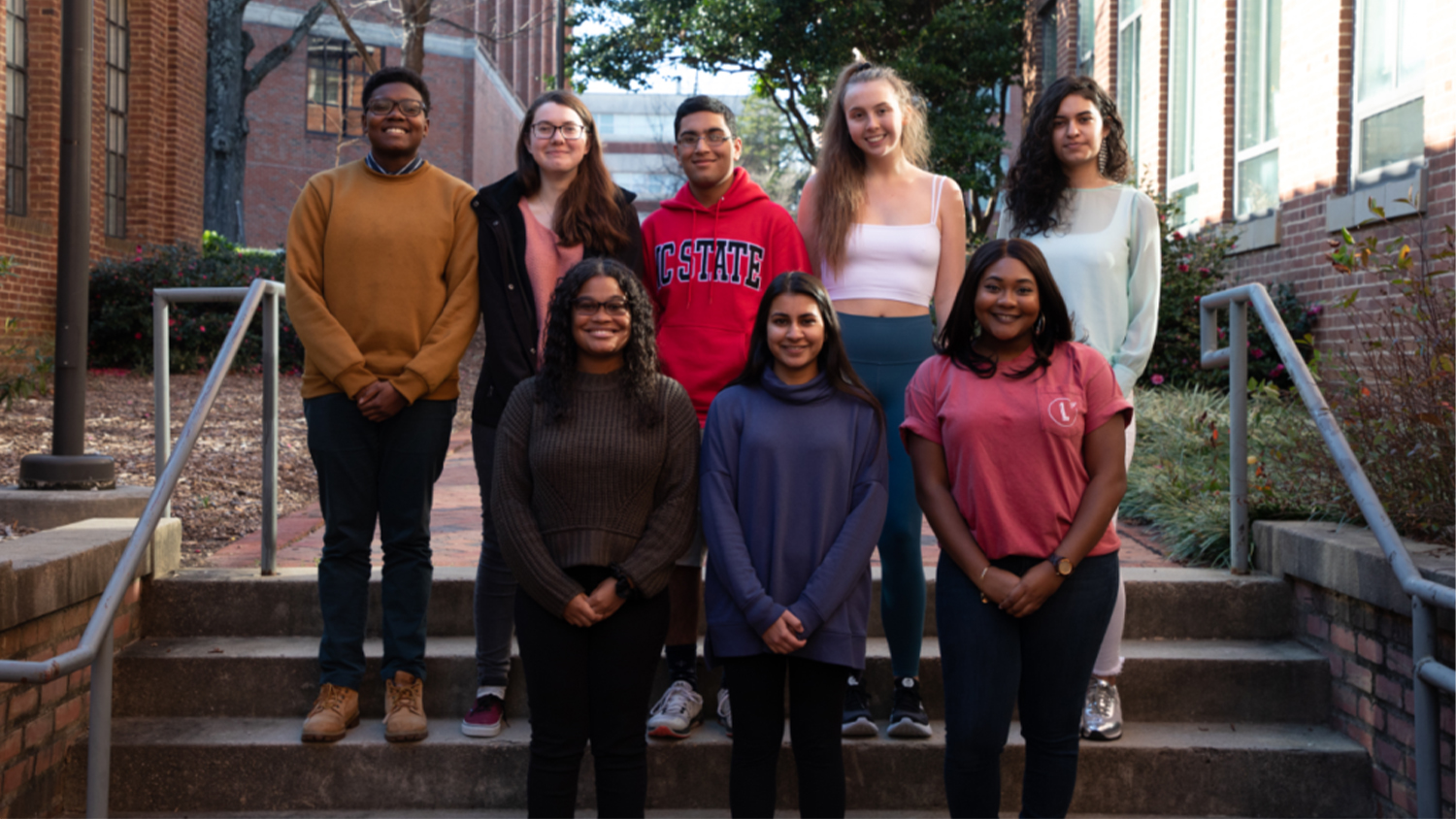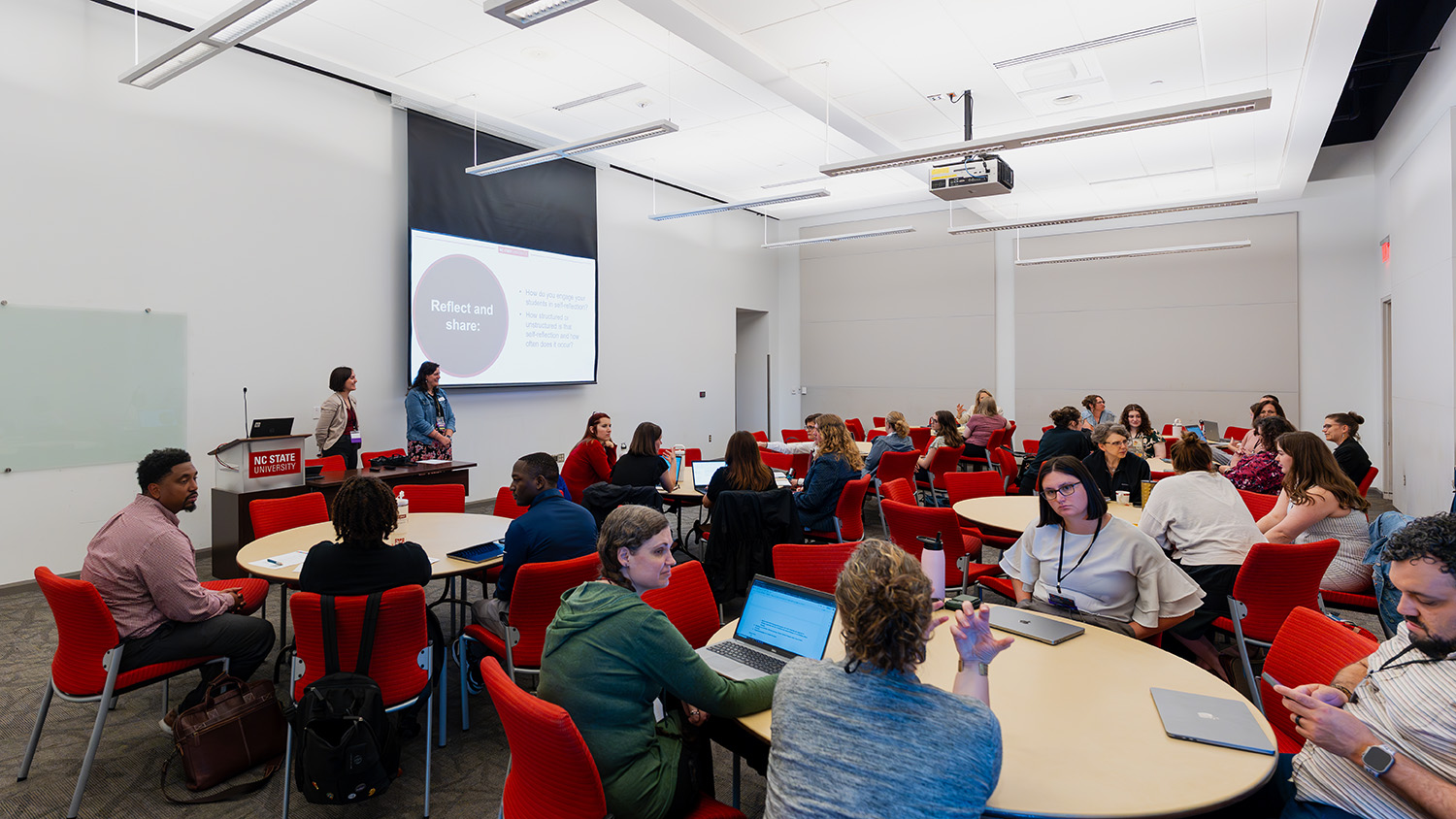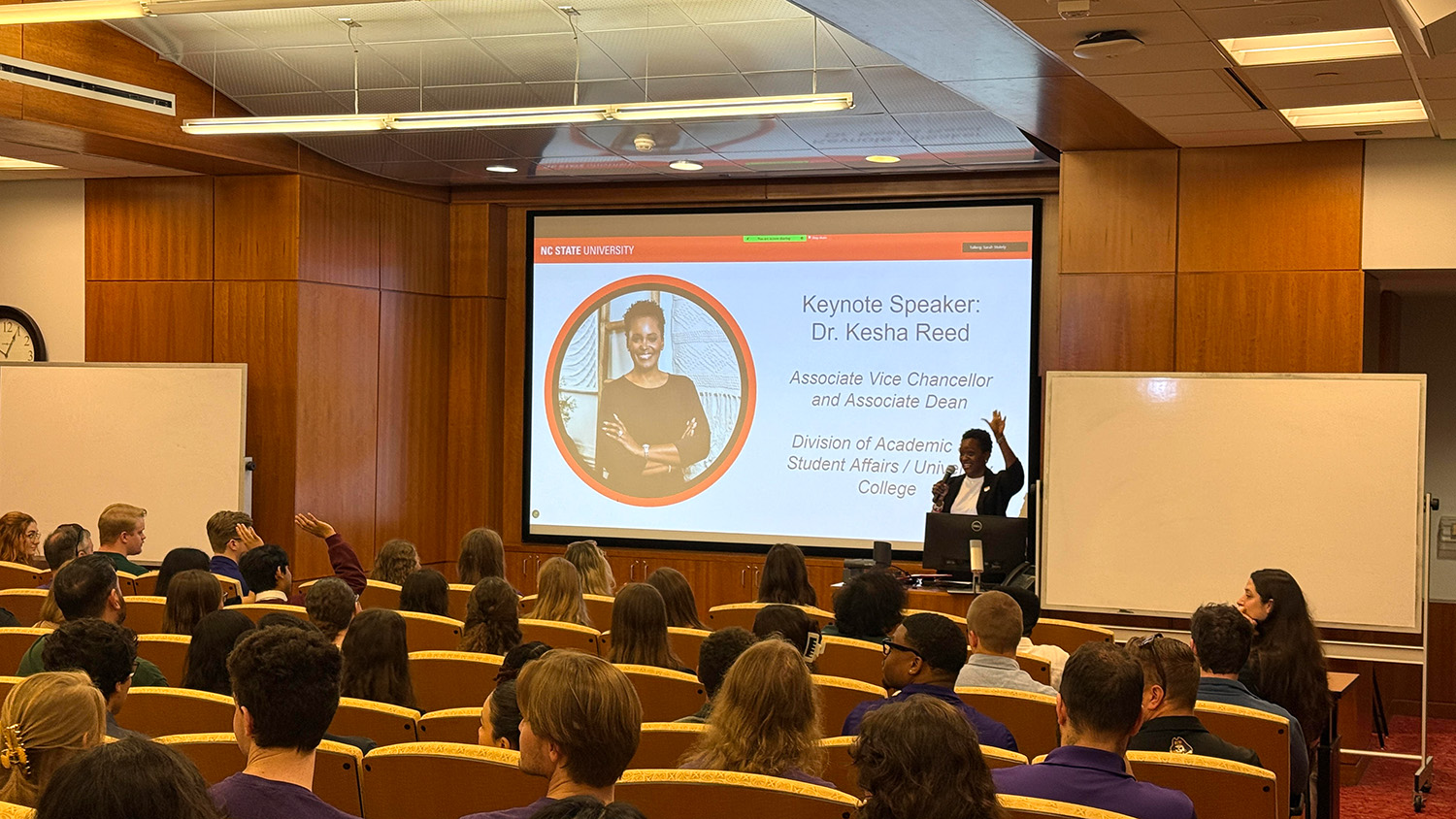Engaging Students in Assessment: Pack Assessment Ambassadors
Students can play a greater role in assessment projects with the help of some best practices, exemplified through the Pack Assessment Ambassadors program.

By Alison Krowiak
The Role of Students in Assessment
The DASA assessment process helps faculty and staff analyze our progress in our mission to promote the success of the whole student at NC State. With students at the center of our practice, the meaningful inclusion of students in our assessment efforts is paramount. Beyond just collecting and analyzing student experiences and data, this means co-creating, sharing, and incorporating students in all stages of the assessment cycle.
DASA units often desire to include students in their assessment efforts, but operationalizing these efforts can feel daunting. DASA Assessment recommends taking an incremental approach. DASA Assessment’s Pack Assessment Ambassadors program serves as an example of strategies that can be used to meaningfully incorporate students into the assessment process.
The Pack Assessment Ambassadors
The Pack Assessment Ambassadors (PAA) in DASA are student leaders who are trained to conduct focus groups with students about topics impacting student success. Ambassadors work with DASA Assessment staff throughout each step of the process, from identifying focus group questions to analyzing and interpreting focus group findings. DASA Assessment has run this program for several years, but in spring 2021 we partnered with TRIO Programs to focus on answering questions about how to support the success of first-generation students at NC State. First-generation students are usually defined as those students whose parents or guardians did not obtain a college degree, and often have unique experiences and challenges as a result.
For this project, DASA Assessment and TRIO knew it was important to use several strategies for effective student participation in the assessment process. Below are the decisions and practices that helped make students’ involvement in this assessment project successful.
Representation from Student Populations
Through the partnership between DASA Assessment and TRIO in spring 2021, first-generation students applied and were selected to work as Pack Assessment Ambassadors. Since focus groups centered on the experiences of first-generation college students at NC State, it was important to represent this population within the Pack Assessment Ambassadors. Ambassadors who identified as first-generation were able to provide their perspective throughout the process, help write questions, and lead focus groups. In addition to being first-generation, Ambassadors represented multiple backgrounds and identities. Importantly, the first-generation students who were invited to participate in focus groups were also diverse. One strategy DASA Assessment used to ensure representation was to oversample historically underrepresented students when drawing lists of focus group invitees in order to amplify the voices of those who are often numerically underrepresented in focus groups.
Tips for Representation:
- Ensure recruitment sources and practices are conducive to recruiting diverse student participants.
- Ask questions of yourself and colleagues such as “What groups could I be missing? Who should I reach out to?”
- Identify any barriers to participation for students (e.g., meeting times or other requirements) to increase inclusion.
Student Training and Preparation
Just as staff receive training and preparation before taking on new initiatives, it is important to set students up for success when they take part in assessment projects. In the Pack Assessment Ambassadors program, staff spend time orienting students to topics they may not have previously encountered. This begins during interviews for Ambassador positions where students have a chance to learn and ask questions about DASA’s role in supporting student success, qualitative inquiry, focus groups, and the Pack Assessment Ambassador’s goals. They build upon that foundation by receiving training in each step of the focus group process, including best practices in question writing, moderating focus groups, analyzing data through multiple lenses, and checking for alignment with the purpose of the assessment throughout the process. Assessment staff work with student ambassadors and provide guidance on best practices throughout the process.
“The training I received through PAA allowed me to really be engaged throughout the entire process of assessment. We were trained to approach the assessment with greater teamwork and collaboration because we were building off of each other’s knowledge and observations. Through the training, we gained a greater analytical perspective when approaching qualitative data by looking for underlying trends and themes and analyzing findings to summarize their importance.” – Sophia, Pack Assessment Ambassador
Tips for Student Preparation:
- Be careful about your assumptions regarding what students are familiar with at the start of an assessment project, and check for understanding throughout.
- Students come from a variety of backgrounds and skill levels, so give students opportunities to learn from staff/faculty and from each other.
- Adapt any existing training for students (e.g., define terms and alter examples originally written for faculty and staff).
Decision-Making Ability
The Pack Assessment Ambassadors are not just student workers performing work tasks, but they have a significant hand in the decision-making process of focus group preparation. With guidance from DASA Assessment, spring 2021 Ambassadors identified priority subtopics within the topic of first-generation student success. They decided that “sense of belonging” and “utilizing support resources” were key areas for DASA to learn more about the experiences of first-generation students. Ambassadors also identified the topic of representation on campus as an important piece to include in focus group questions for 2021. After focus groups had concluded, Ambassadors took the lead in identifying themes from participant responses and writing recommendations for DASA based on what they learned. Giving Ambassadors a platform to write recommendations in their own words was important in order to avoid diluting the first-generation student voice.
Tips for Empowering Students’ Decision-making:
- Identify ways for students involved in your assessment project to set directions within the scope and goals of the project.
- Create an environment in which students feel encouraged to speak up, ask questions, challenge assumptions, and set directions.
- Communicate to students the importance of their roles and their responsibility to determine priorities or decisions for the group as applicable.
Compensation for Work
Staff and faculty who work to improve student success at NC State do not do so without compensation for their work, so it was important to staff coordinating the Pack Assessment Ambassadors program to recognize the student Ambassadors’ value by paying them. While resource availability can be challenging for any unit, DASA Assessment and TRIO Programs found a creative solution through their partnership in spring 2021. TRIO Programs provided the funding for PAA, while DASA Assessment provided the staff time to train Ambassadors throughout the spring 2021 semester.
“Although brilliant and determined, our students [in TRIO] face a unique set of challenges that often pose a barrier for them to participate in co-curricular activities such as undergraduate research, internships, study abroad, etc. These experiences are valuable and can make an impact on students’ future. However, financial challenges, family responsibilities, and other external factors may prevent participation. Providing students with compensation to engage in various co-curricular activities has the ability to greatly impact their future. It also has the ability to attract a more diverse group of students which can make the experience richer.” – Trisha Mackey, Academic and Research Coordinator in TRIO Collegiate Programs
Additionally, focus group participants were compensated with $10 gift cards for contributing their time and feedback to help DASA learn about first-generation student experiences.
Tips for Student Compensation:
- Plan ahead by budgeting for compensation for students who will be involved in the assessment process. Make sure the funds are in the correct account-types to be distributed to students when it is time.
- Educate and prepare yourself about compensation for students who may be participating in different capacities (e.g., student employees, student committee members, focus group participants).
- Identify entities on campus that may have common goals with your assessment initiative, to discover how to collaborate regarding resources and sharing results.
More Information
If you are interested in learning more about how you can incorporate students in your assessment plan, please contact Jordan Luzader (jdluzade@ncsu.edu).
- Categories:


